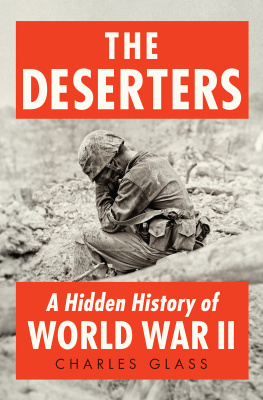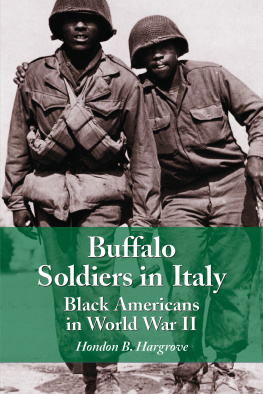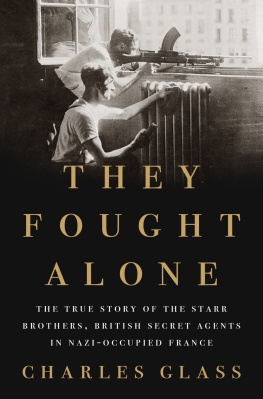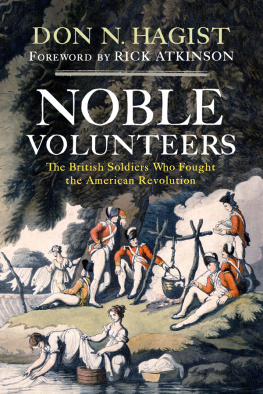BY THE SAME AUTHOR
Americans in Paris: Life and Death Under Nazi Occupation, 19401944
Tribes with Flags
Money for Old Rope
The Northern Front
The Tribes Triumphant
THE PENGUIN PRESS
Published by the Penguin Group
Penguin Group (USA) Inc., 375 Hudson Street,
New York, New York 10014, USA
USA Canada UK Ireland Australia New Zealand India South Africa China
Penguin Books Ltd, Registered Offices: 80 Strand, London WC2R 0RL, England
For more information about the Penguin Group visit penguin.com
Copyright Charles Glass, 2013
All rights reserved. No part of this book may be reproduced, scanned, or distributed in any printed or electronic form without permission. Please do not participate in or encourage piracy of copyrighted materials in violation of the authors rights. Purchase only authorized editions.
First published in Great Britain as Deserter: The Last Untold Story of the Second World War by HarperPress, an imprint of HarperCollinsPublishers
Library of Congress Cataloging-in-Publication Data
Glass, Charles, 1951
The deserters : a hidden history of World War II / Charles Glass.
pages cm
Includes bibliographical references and index.
ISBN 978-1-101-61781-6
1. World War, 19391945Desertions. 2. World War, 19391945Psychological aspects. 3. Military desertersHistory20th century. 4. Desertion, MilitaryHistory20th century. 5. CombatPsychological aspects. I. Title.
D810.D57G53 2013
940.54'8dc23
2012046881
To two friends, brave American soldiers,
Private First Class Stephen J. Weiss and the late Colonel Alfred E. Baker
During the Second World War, the United States awarded Private Weiss a Bronze Star, three U.S. battle stars, a Second World War Victory Medal, a Southern France D-Day Landing Citation, a Combat Infantry Badge and a Good Conduct Medal. France named him Officier de la Lgion dHonneur and gave him two Croix de Guerre, a Mdaille de la Rsistance, a Croix du Combatant, the Vosges Department Citizen of Honor Diploma and French citizenship.
During the Vietnam War, the United States awarded Colonel Baker, as the Pennsylvania House of Representatives noted in his honor, the Silver Star for gallantry in action, multiple awards of the Defense Superior Service Medal, multiple awards of the Legion of Merit, three awards of the Bronze Star, three awards of the Meritorious Service Medal, four awards of the Purple Heart medal (for wounds received in battle) and many other service and achievement medals. At one time, he was the most highly decorated veteran of the Vietnam War era.
CONTENTS
I lack the guts to take being thought a coward.
Audie Murphy, To Hell and Back
INTRODUCTION
B Y HIS OWN ADMISSION , Eddie Slovik was the unluckiest man alive. Nearly 50,000 American and 100,000 British soldiers deserted from the armed forces during the Second World War, but the twenty-five-year-old ex-convict from Detroit, Michigan, was the only one executed for it. Sloviks desertion in northern France on 9 October 1944 was atypical in that, while 80 percent of deserters were frontline infantrymen escaping after long periods of continuous combat, he never fought a battle. Nor did he go on the run as most other deserters did. His mistake was to make clear that he preferred prison to battle. Rather than grant his wish, a court-martial condemned him, in accordance with the Articles of War that then prescribed the forms of military justice, to death by musketry.
Of the forty-nine Americans sentenced to death for desertion during the Second World War, Slovik was the only one whose appeal for commutation was rejected. The timing of his court-martial, amid the November fighting in the Hrtgen Forest that caused 6,184 casualties among the 15,000 troops in Sloviks 28th Infantry Division, militated against clemency. So too did the coincidence in January 1945 of his appeal against the death sentence and the German counteroffensive known as the Battle of the Bulge, when the U.S. Army in northern Europe was fighting for its own survival. It was not the moment for the supreme Allied commander, General Dwight Eisenhower, to be seen to condone desertion.
Correspondence among senior commanders documents their belief that Sloviks death was necessary to prevent others from following his example. They nonetheless decreed that his execution in the remote French village of Sainte-Marie-aux-Mines be conducted in secrecy. (Slovik, the condemned coward, died without pleading for his life or showing anything other than courage before the firing squad.) Even if soldiers at the front had known that the young private was shot for desertion on the morning of 31 January 1945, the Battle of the Bulge had by then ended in an Allied victory. The urgency for lethal deterrence had disappeared, as the Allied armies resumed the offensive that would topple the Third Reich four months later. Concealing the truth about Sloviks execution extended to informing his wife, Antoinette, only that he had died in the European Theater of Operations.
Journalist and novelist William Bradford Huie uncovered the cause of Sloviks death in 1948, but the issue remained so sensitive that he concealed the condemned mans identity in Liberty magazine as a twenty-five year old American white mancall him Lewis Simpsona replacement in the 28th Division. Huies article raised fundamental questions about why only one deserter among thousands was put to death. It also cast doubt on the willingness of Americans to fight. Huie, who served in the United States Navy during the war, noted that psychiatrists had permitted 1,750,000 men, one out of every eight they examined, to avoid military service for reasons other than physical. Despite the rigorous screening, soldiers suffered nervous breakdowns, mental trauma and battle fatigue (also called battle exhaustion) that rendered them unfit for combat. Huie observed, During the Second World War approximately 38,000 officers and menabout 10 per cent were officerswere tried by army general courts-martial for seeking to evade hazardous duty by some dishonorable means. Their sentences, apart from Sloviks, were less onerous than the hardships suffered by their comrades who fought on. Huie considered this an outrage: If a sound-bodied, sound-minded American soldier who deserts his comrades on the eve of battle deserves only comfortable detention, subsequent pardon, and a college education under the G.I. Bill of Rights, then why should any man ever again risk death in combat for this country?
He added that by abolishing cowardice the psychiatrists had tended to relieve all Americans of the individual responsibility to fight. Yet most soldiers did fight. Desertions were almost nonexistent in the Pacific, where a man seeking to avoid danger had nowhere to hide. In Europe, the total that fled from the front rarely exceeded 1 percent of manpower. However, it reached alarming proportions among the 10 percent of the men in uniform who actually saw combat. Allied commanders debated means to stanch the flow. General George Patton wanted to shoot the cowards, and in Sicily he famously slapped a shell-shocked soldier whom he accused of malingering. Senior British commanders in North Africa and Italy pleaded with their government to restore the death penalty for desertion, as in the First World War. Other commanders, whose views prevailed, favored providing psychiatric as well as traditional medical care in forward aid stations. They recognized that the mindsubject to the daily threat of death, the concussion of aerial bombardment and high-velocity artillery, the fear of land mines and booby traps, malnutrition, appalling hygiene and lack of sleepsuffered wounds as real as the bodys. Providing shattered men with counseling, hot food, clean clothes and rest was more likely to restore them to duty than threatening them with a firing squad.




















